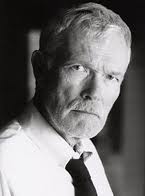



In fact I couldn’t allow myself not to, driven as I was by this highly self-critical perfectionism. I was confused because ‘depressed’ seemed a good way to describe this horrible place, but the sudden plummet was different to the long periods of dark moods described in depression memoirs. This is the way I depicted it when I tried to draw it, some years later. It often only lasted for hours, although it could last days, and it happened against the backdrop of a generally highly self-critical way of treating myself. Sometimes it eventually lifted by itself. Sometimes it became so desperate that I self-harmed, which seemed to alleviate it. The experience I described was something I’d been going through for years: a swift plummet into an utterly hopeless place where I felt panicked and utter hatred towards myself. Here’s how to cure it.’ Actually what they said was that they’d never heard of what I was describing and it certainly wasn’t anything like their experience of depression. Several times I remember going up, in some desperation, to the speaker at the end of the talk and describing my experience, in the hope that they would say ‘absolutely, that’s a legit kind of depression. When I was in my twenties I read every book I could find on depression, and went to see the authors speak whenever I had the opportunity. I’m very grateful to my co-creator, Alex Iantaffi, for their podcast on cPTSD – and for our conversations over the years – which helped me to find this literature. I also find Steve Haines’ graphic guide Trauma is Really Strange, David Treleaven’s Trauma-sensitive Mindfulness, and Sarah Peynton’s Your Resonant Self helpful. Largely I’m drawing on Pete Walker’s book cPTSD here, but also on Judith Herman’s classic Trauma and Recovery, where she first came up with the idea of cPTSD. But hopefully the summary of what I’ve read so far will be helpful as a starting point for others who see themselves in this idea of cPTSD. First and foremost this is for myself, so that I can bed this knowledge in, and weave it together with my existing understandings of how people and relationships work. This post is my attempt to summarise what I’ve learnt so far. The last couple of months I’ve been reading everything I can get my hands on about trauma, particularly cPTSD (complex post traumatic stress disorder). Content Note: Brief mentions of self-harm, suicidal thoughts, bullying, war, and sexual violence, but not details. This post gives an overview of trauma and how it works – drawing largely from Pete Walker’s work on cPTSD. In recent blog posts and podcasts I have been increasingly weaving a trauma-informed perspective into my writing.


 0 kommentar(er)
0 kommentar(er)
